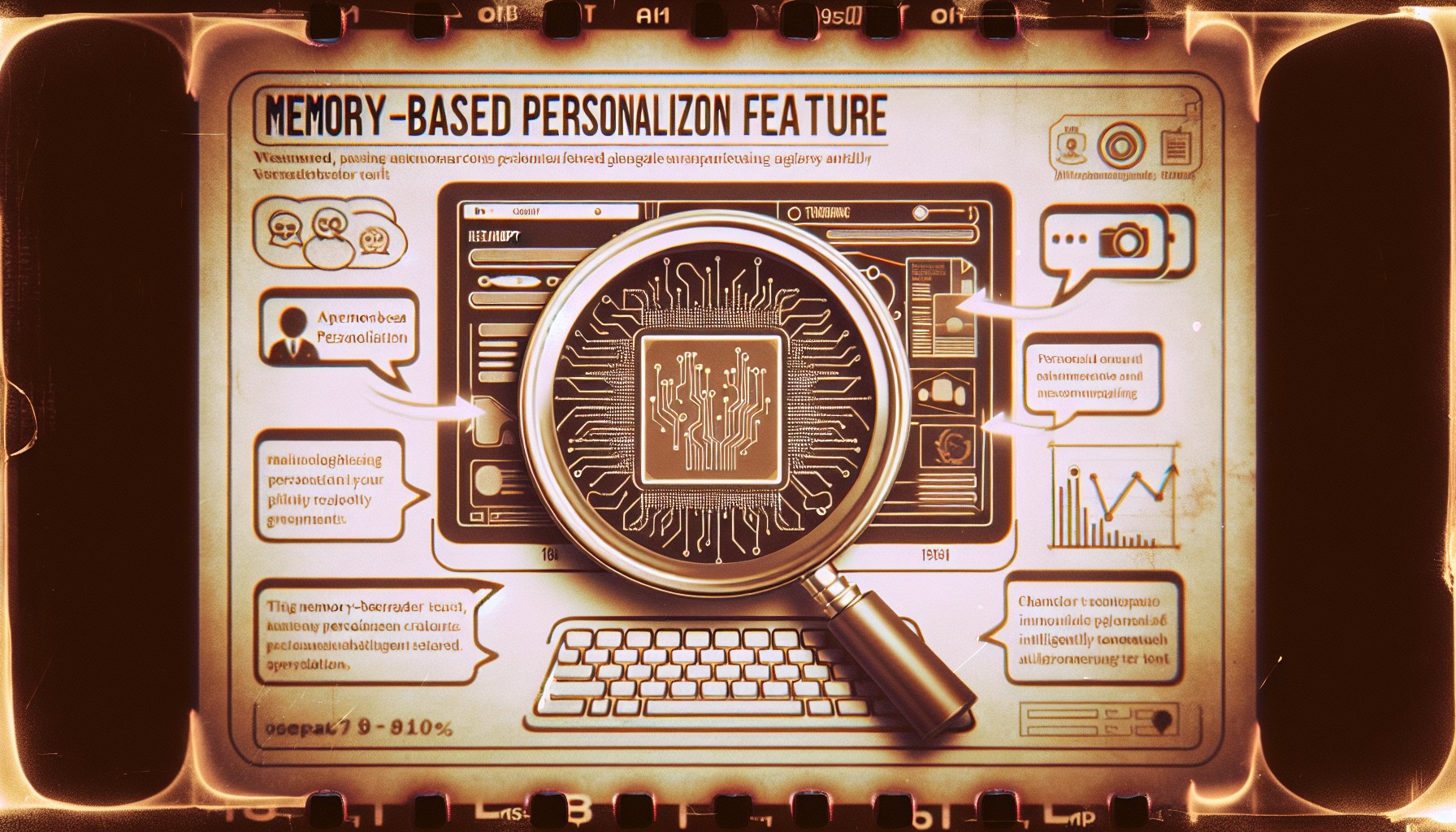In the ever-evolving landscape of artificial intelligence, OpenAI has once again taken a significant leap forward with the introduction of “Memory with Search” for ChatGPT. This latest enhancement marks a notable advancement in making AI interactions more personalized and context-aware. By enabling ChatGPT to recall details from past interactions, OpenAI is pushing the boundaries of what conversational AI can achieve, setting new standards for user experience in AI-driven communications.
The concept of memory in AI is not entirely new, but the ability to integrate it seamlessly into chat interactions represents a breakthrough. With “Memory with Search,” ChatGPT can now remember user preferences and past discussions, allowing for more coherent and relevant responses. This feature transforms the AI from a simple query-response machine into a more dynamic conversational partner, capable of nuanced understanding and tailored interactions.
One of the key benefits of this upgrade is the enhancement of user engagement. By remembering details such as a user’s favorite foods or preferred topics, ChatGPT can provide more meaningful and personalized content. This level of customization is particularly beneficial in applications such as virtual assistants, customer service, and educational tools, where understanding user context can significantly improve the quality of interaction.
Moreover, this memory feature has the potential to revolutionize how businesses and individuals utilize AI. For businesses, it means they can offer more personalized customer experiences, leading to increased satisfaction and loyalty. For individuals, it can transform how they use AI in their daily lives, making interactions with digital assistants more like conversations with a knowledgeable friend rather than transactions with a machine.
However, the introduction of memory in AI also raises important questions about privacy and data handling. OpenAI will need to ensure that user data is handled with the utmost care, providing transparency and control over what the AI remembers. Users should have the ability to manage their data, opting in or out of memory features, to maintain trust and security in AI interactions.
Technologically, implementing memory in AI systems like ChatGPT involves complex challenges. It requires sophisticated algorithms to determine what information should be retained and how it should be accessed during future interactions. Balancing memory capacity with processing efficiency is crucial to ensure that the AI remains responsive and capable of handling real-time queries.
This development is also indicative of broader trends in artificial intelligence, where the focus is increasingly on creating systems that can learn and adapt over time. Such systems are moving beyond static models to become more like learning entities that grow with each interaction. This shift has profound implications for the future of AI, potentially leading to more intelligent, autonomous systems that can anticipate and respond to user needs with greater accuracy.
As we look to the future, the integration of memory into AI systems like ChatGPT heralds a new era of human-computer interaction. It promises to make AI more intuitive and aligned with human communication patterns, ultimately enhancing the way we interact with technology. As OpenAI continues to innovate, the boundaries between human and machine communication will likely blur, opening up exciting possibilities for AI applications across various sectors.
